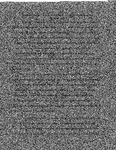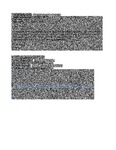- DSpace Home
- →
- Channel Islands
- →
- Academic Affairs
- →
- Undergraduate Capstone Projects
- →
- English
JavaScript is disabled for your browser. Some features of this site may not work without it.
| dc.contributor.advisor | Joan Peters | en |
| dc.contributor.author | Renger, James | en |
| dc.date.accessioned | 2014-04-08T18:57:14Z | en |
| dc.date.available | 2014-04-08T18:57:14Z | en |
| dc.date.issued | 2014-04-08 | en |
| dc.identifier.uri | http://hdl.handle.net/10211.3/118617 | en |
| dc.description.abstract | The Prose Edda and the Poetic Edda serve as the primary texts from which we draw our modern understanding of ancient Norse mythology. Central in these myths is the role of nature, which is depicted in a ways that are closely associated with contemporary understandings of the world in which we live, and there is no better demonstration in of the ecological concepts in these tales then Ygdrasil. By understanding the ecological connections in ancient Norse mythology through the Ygdrasil imagery, it is possible to make the eco-critical analysis of the mythology while shedding light on the very real contemporary environmental threats to the basis of one of the central images of their mythology. | en |
| dc.language.iso | en_US | en |
| dc.rights | All rights reserved to author and California State University Channel Islands | en |
| dc.subject | Norse mythology | en |
| dc.subject | Old Norse literature | en |
| dc.subject | Nature in literature | en |
| dc.subject | Eddas | en |
| dc.subject | Yggdrasil | en |
| dc.subject | Iceland civilization | en |
| dc.subject | Ecocriticism | en |
| dc.subject | English Capstone Project | en |
| dc.subject | ENGL 499 | en |
| dc.title | Gardens of the Old Gods: Ecocriticism of Yggdrasil in the Eddas | en |
| dc.type | Other | en |
Files in this item
This item appears in the following Collection(s)
-
English [11]


